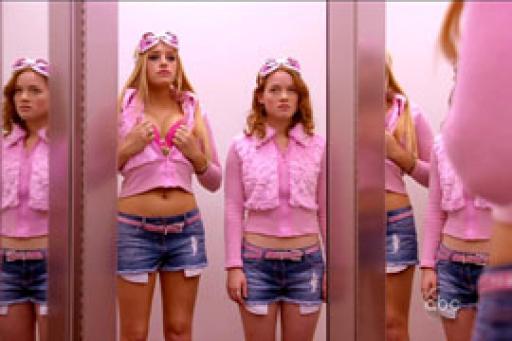Pusher
Directed by Luis Prieto
Written by Matthew Read
United Kingdom, 2012
The best action in film springs from desperation. Die Hard hits plenty of familiar beats in the action-movie genre, for example, but forces its lead into a corner at the outset, making it so he has to fight to get out and stay alive. The notion of trapping someone to see what they’ll do and how far they’ll go to survive is at the heart of the propulsive and intense new British thriller Pusher, a remake of the 1996 film that catapulted its director, Nicolas Winding Refn (recently the director of Drive, and the executive producer of this redo), to European film stardom. The new Pusher is a stripped-down affair, emphasizing the ticking-clock element of the story to exceptional effect.
Frank (Richard Coyle) is a small-time drug dealer in London, living as close to the high life as he can get with his chatty, randy partner in crime Tony (Bronson Webb) and his stripper girlfriend Flo (Agyness Deyn). During the day, he sells; when the sun sets, he uses what he can and gets blotto at local nightclubs, drowning in loud music and bright lights. This twisted idyll comes to a close early in the week that Pusher is set over, when an old friend of an old friend begs him for a heroin hook-up that Frank has to get from Milo (Zlatko Burić), his jovial but fierce Serbian supplier. When the deal goes south and the cops get involved, Milo demands Frank get him back his money plus interest or else he’ll be six feet under.
Pusher uses brevity to punctuate the growing fear and terror Frank feels in his situation. (The movie’s only 86 minutes long, including its end credits.) Every choice Frank makes, each one seeming foolproof at first, simply makes his problem greater. As the week progresses, he becomes more like a wounded animal, surrounded by superior predators, hoping that each lash out will strike a killing blow. Coyle, who’s worked in a few international productions but may only be vaguely recognizable to American audiences, is well-cast as Frank; in the opening minutes, he’s able to convince us that he’s got his life together (relatively speaking) and is intelligent and self-aware enough to know his place in the world. But as the proverbial noose around Frank’s neck gets tighter, Coyle conveys an impending sense of doom. Frank knows that a happy ending is likely not in the cards, whatever hopes he may harbor to the contrary. Coyle’s sweaty, tense performance is the film’s greatest asset.
Among the rest of the cast, the other standout is Burić, reprising his role from the original trilogy, as a drug lord who goes out of his way to tell Frank that they’re friends, the best of buddies, right before either demanding more money or letting his goons torture and beat Frank viciously. He doesn’t raise his voice often; still, even as he greets Frank boisterously, he commands the room, an instantly fearful figure. After the cult-like success of Refn’s American debut, Drive, audiences may be a bit surprised at how Pusher eschews more arty tendencies, despite playing on some familiar ideas from the Ryan Gosling-led thriller; the younger man, for instance, colliding with an older, almost-father-figure-like criminal with disastrous results. Still, Pusher is as simple as an action movie gets. Director Luis Prieto and screenwriter Matthew Read waste no time with the details, to an almost laughable effect. By the end of the first minute, we’ve gotten the studio logo, the title, the names and images of the five main characters, the subtitle “Monday,” and the beginning of a raucous conversation between Frank and Tony, set to high-intensity techno beats. Either you’re on board or you’re not.
Pusher works with a concept we may not be surprised by, but executes it effectively and confidently. Though this remake is plenty stylish—when Frank is at his most furious, it’s as if he’s literally vibrating and bouncing off the screen—it never feels distracting or unnecessary. We’re inside Frank’s mind from the opening scene, sucked into his struggle as he inevitably walks into the face of death and disaster, blind to the tragedy he’s creating. Like another superb foreign thriller from earlier this year, Sleepless Night, Pusher and its filmmakers know that the higher the stakes gradually get, and the further you push a protagonist out of their comfort zone, the better the result. Pusher starts with its lead in a slightly untenable place, and just gets better as it nudges him to a bleak end.
— Josh Spiegel







